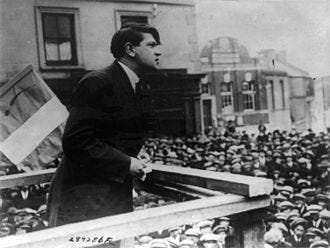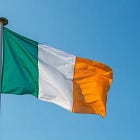The creation of the Irish Free State in 1922
The eclipse of the Irish nationalist and republican revolution

I continue today with my reflections on Ireland, drawing upon Ireland, Colonialism, and the Unfinished Revolution by Robbie McVeigh and Bill Rolston, published by Haymarket Books in 2023 and by Beyond the Pale Books, Belfast, Northern Ireland, in 2021. In my previous commentary of November 7, I discussed English colonialism in Ireland, in which I maintained that the norms and structures of English colonialism in Ireland from 1511 to 1922 were fully consistent with the patterns of Western European conquest and colonial domination of the Americas, Asia, and Africa from 1492 to 1914.
Sinn Féin, meaning “We Ourselves,” was founded in 1905 by Arthur Griffith for the purpose of establishing an independent national legislature endowed with the moral authori…



